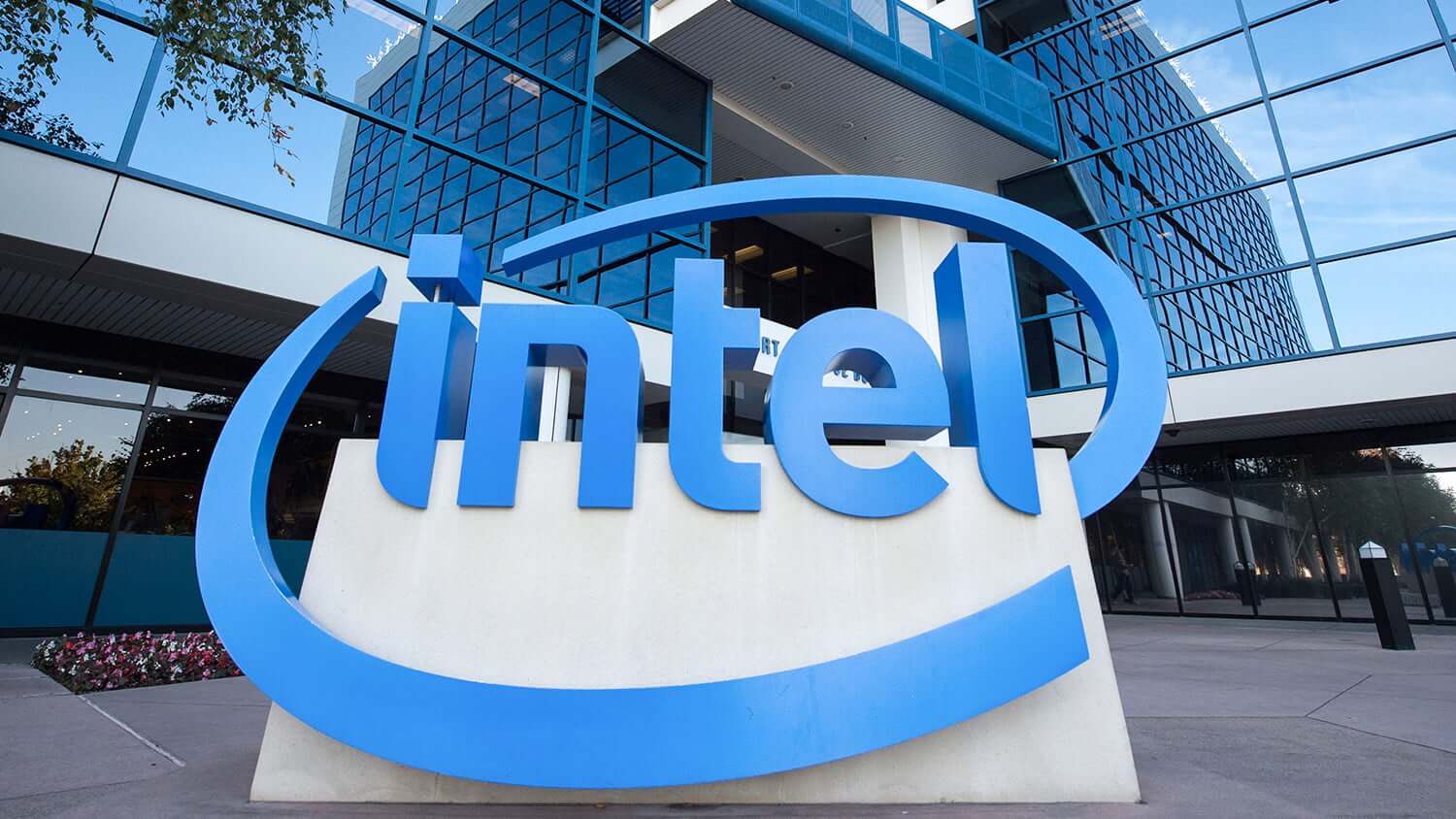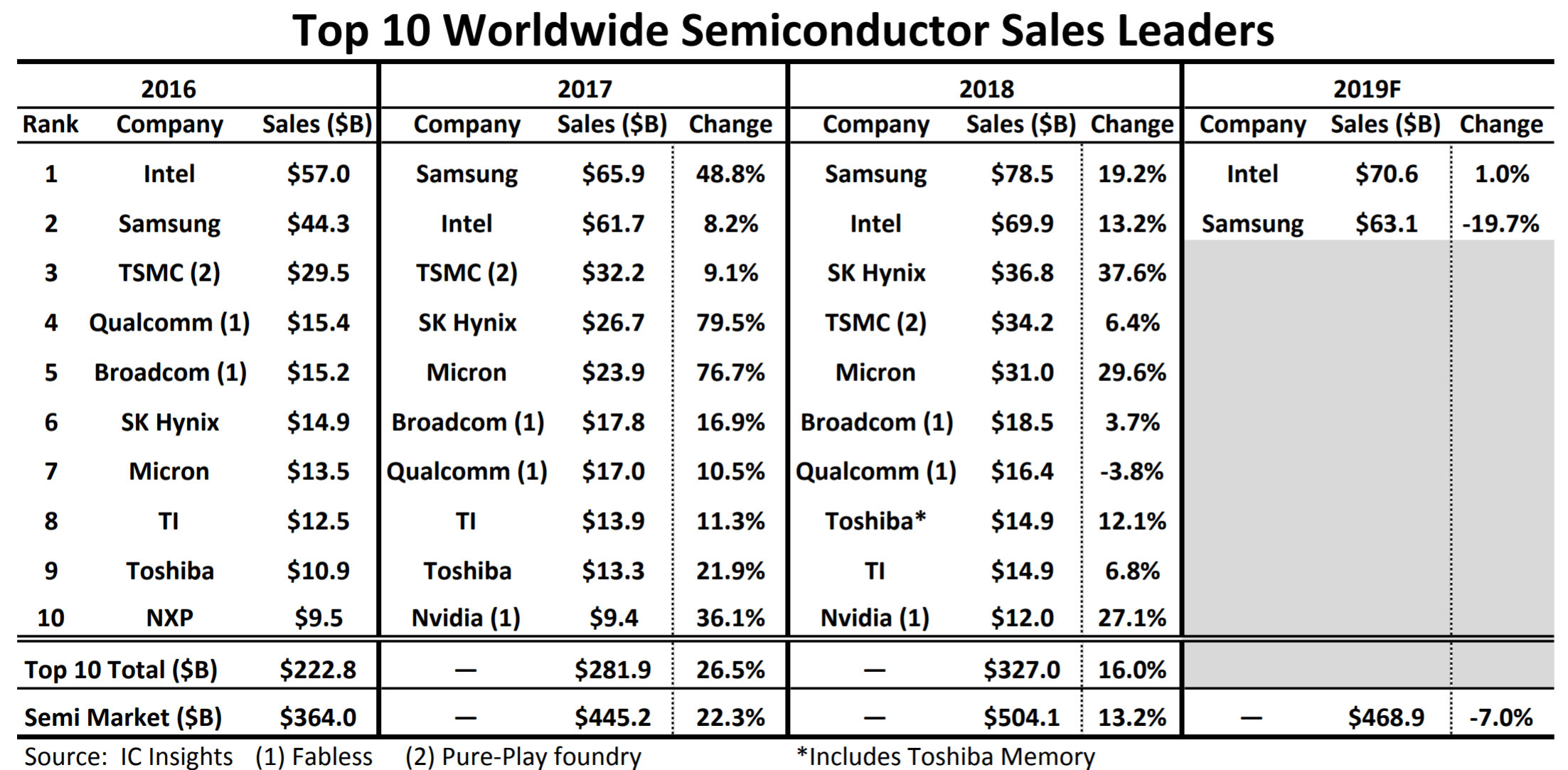Why it matters: 2017 was an important year for Samsung, with the Korean firm finally displacing Intel as the world's biggest chipmaker. But a new report believes it will lose the title back to Chipzilla in 2019, mostly due to a decline in the memory market.
Samsung's chipset division generated sales of $65.9 billion in 2017, beating Intel's $61.7 billion. This meant that for the first time since 1992, Intel was no longer the world's largest chipmaker. But Samsung's title could be short-lived.
A report by market research company IC Insights predicts that, after beating Intel's semiconductor sales in both 2017 and 2018, Samsung will be back in second spot this year. The document forecasts a 24 percent drop in the memory market during 2019, declining the overall semiconductor industry by 7 percent. As 83 percent of Samsung's chip sales were memory devices last year, the downtown is expected to hit it harder than Intel.
IC Insights writes that although Intel's semiconductor sales are expected to be flat in 2019 with a growth rate of just 1 percent, its $70.6 billion still beats Samsung's $63.1 billion, which marks a 20 percent decline for the tech giant compared to 2018.
It's not just Samsung that's expected to feel the effects of the slowing DRAM and NAND flash markets. Top-10 ranked memory suppliers such as SK Hynix, Micron, and Toshiba/Toshiba Memory are all expected to see sales declines of 20 percent or more. Overall, the semiconductor market is set to drop from $504.1 billion to $468.9 billion this year, which is still an improvement over 2017's total.

